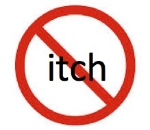No "Itch" in Michigan
/I can always tell when someone is new to the Great Lake State. In the first few minutes of conversation, it usually comes out how they just moved to “Mitch-igan.” As a good ambassador of the mitten-shaped peninsula, I then have to correct them. “It’s pronounced Mish-igan,” I say, sometimes adding that the spelling came from the early French trappers and explorers who beat the British to the upper Midwest. (It’s hard to stop a good teacher-ambassador once he gets started.)
It comes as no surprise to students of English that the spelling system of this language is a nightmare. Almost half of our words are Germanic, coming from Anglo-Saxon; nearly another half come from Latin via Old French. Add to that a sprinkling of Arabic, Spanish, Greek, and other languages, and it is clear that our vocabulary—and the system used to spell it—is one huge mish-mash of letters, letter clusters, and even silent letters.
The good news is that there is a basic rule here. Most of the time, the “ch” cluster in English is pronounced /t∫/ as in child or lunch. Here are some common place names or people names which English speakers know:Chelsea, Massachusetts, Charleston, Chattanooga, Richmond…I’ll give you more examples on our website. And if your native language is Spanish, you will already know the correct pronunciation of those words.
Exception #1: At question today is the spelling cluster “ch” as we see in Michigan. Students who have studied French or Portuguese know that these two letters represent the linguistic symbol /∫/ or the English cluster “sh” as in she.
Here are some common “ch” place names or people names with the /∫/ pronunciation:Chicago, Michigan, Cheyenne, Charlotte, Michelle, Cheryl, Michelin, Chevron, Chanel, Chevrolet, and Cher. Maybe you can find more examples.
Exception #2: Another way to pronounce “ch” is with the /k/ sound. These words often come into English from Greek or Italian: chronicle, chemistry, stomach, echo, Christmas, headache, Chrysler, and chrome. Ask your American friends for more examples.
Exception #3: The last group of exceptions to the “ch” rule are words which come from Hebrew. These words have the sound /X/ with friction coming from the back of the mouth (similar to the “ch” in Bach). Because most English speakers can’t pronounce /X/, they just substitute a /h/ sound in these Hebrew words. Here are a few well-known examples: chutzpah, challah, Chanukah.
For newcomers to my state, here is a tip for you: Michigan sounds like fish-again or wish-again.
So, repeat after me: “Oh, how I wish-again I were in Michigan learning to fish-again.”
Happy practicing, everybody!












